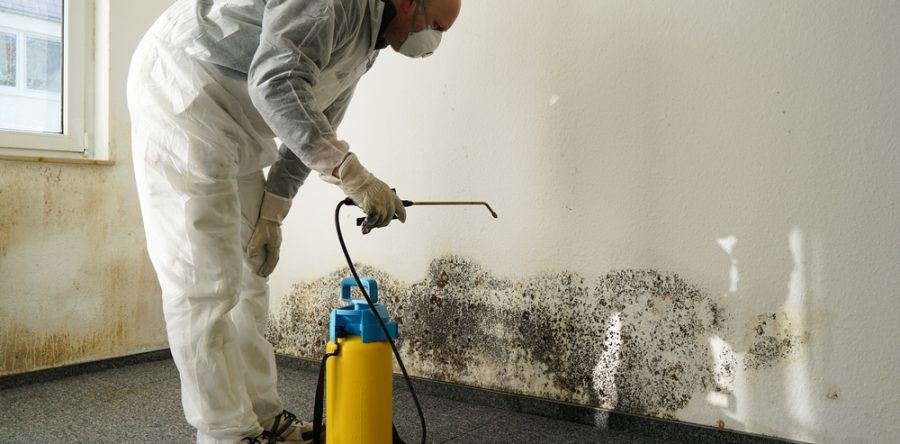Any employer, landlord, or business owner has likely heard and feared the word “mold” more than once before. Mold in the workplace can bring hefty lawsuits, fines, and a very bad reputation for potential future employees. More and more of your employees are likely becoming aware of mold which puts you at a greater risk for backlash. If there is mold present your employees could file worker’s comp, disability, lawsuits, and much more. With the growing fear between employer and employee, we decided to give you a quick look at what you need to know about the mold epidemic in the workplace.
Detecting Mold
Detecting mold in the building is the first step towards addressing the problem. It’s important to remember that every building holds some amount of mold and that’s inevitable, but more severe cases and types of mold are what lead to health issues. Noticing a musty smell is generally the first sign of a problem. If multiple employees begin complaining of fatigue, respiratory issues, or irritated nose and throat, you should request a mold investigation just to be safe.
Determine the Cause of the Mold
Once you know that mold is present, you have to determine why. Mold requires a specific environment to grow and thrive and the main requirement is moisture. Mold could be caused by:
- Lack of maintenance
- Water leaks in pipes or windows
- Improper plumbing
- Humid conditions
- Exterior design flaws allowing water to enter the building through the foundation
Get a Mold Inspection
If you spot any of these issues, request that the building owner calls a mold specialist right away. At DCM Environmental Testing, we provide unbiased mold testing, presenting you with an unbiased report of recommendations. It's always best to get a professional's opinion before taking action.
Keeping Employees Informed
Once an issue has been discovered it’s important to inform your employees. You should alert them of the severity of the problem as well as what the plan is to correct the mold infestation. Address what caused the mold and how the building owner plans to fix that in the long-term to prevent future mold issues. If the mold is severe enough to require temporary employee relocation, be prepared for a loss of productivity and morale. It’s important to remain patient with your employees and understand that they’re likely nervous about the exposure they’ve already suffered. Work with your insurance company to help cover losses and cut the costs of the mold problem as much as possible.



